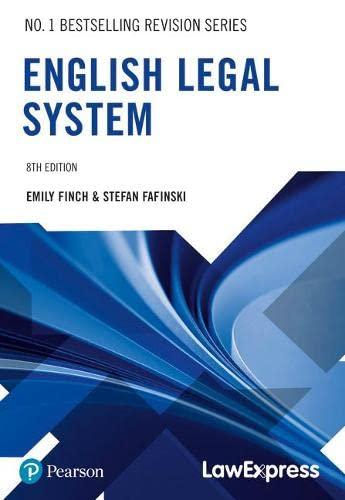Answered step by step
Verified Expert Solution
Question
1 Approved Answer
Defendant, while under oath, testified as a material witness in a criminal trial. On cross-examination Defendant was asked whether he had previously been convicted of
Defendant, while under oath, testified as a material witness in a criminal trial. On cross-examination Defendant was asked whether he had previously been convicted of theft. Defendant replied that he had not. Defendant was subsequently arrested and charged with perjury. The jurisdiction defines perjury as knowingly making a false statement while under oath. At Defendant's trial, the prosecution introduced evidence that Defendant, while a teenager, had been convicted of theft. Defendant then testified that he had indeed been found guilty of theft when he was 16, but his attorney at the time told him that his arrest record would be sealed when he reached the age of 18. Defendant further testified that he believed the sealing of his record absolved him of the conviction, so it was as if it the conviction had never occurred. In fact, that was not the case. If the jury believes Defendant, it should find him: Question 7 options: a) guilty, because his mistake was one of law. b) guilty, because it was unreasonable of Defendant to assume that the sealing of his record absolved him of guilt. c) not guilty, if the jury also finds that his mistaken interpretation of the effect of commutation
Step by Step Solution
There are 3 Steps involved in it
Step: 1

Get Instant Access to Expert-Tailored Solutions
See step-by-step solutions with expert insights and AI powered tools for academic success
Step: 2

Step: 3

Ace Your Homework with AI
Get the answers you need in no time with our AI-driven, step-by-step assistance
Get Started


